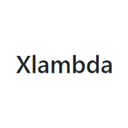Uncovering the Best StumpWM Alternative for Your Workflow
StumpWM is renowned for its minimalist approach as a tiling, keyboard-driven X11 Window Manager. Written and scriptable in Common Lisp, it offers deep customization without visual clutter – no window decorations, icons, or buttons. While its dedication to a pure, keyboard-centric experience is admirable, some users might seek a StumpWM alternative that offers different scripting languages, features, or a slightly varied philosophy. This article explores top alternatives that cater to diverse preferences while maintaining the core benefits of a highly efficient window manager.
Top StumpWM Alternatives
If you love the power and efficiency of a tiling window manager but are looking for a different flavor than StumpWM, whether it's a new scripting language or a unique approach to window management, these options are definitely worth considering.

awesome
awesome is a powerful and dynamic window manager developed in C and Lua. As a Free and Open Source option for Linux and BSD, it provides an extensible window manager experience with robust tiling capabilities, making it a strong contender if you're comfortable with Lua for scripting and customization. It offers similar X server integration to StumpWM.

Xmonad
Xmonad is a Free and Open Source dynamically tiling X11 window manager, highly acclaimed for being written and configured in Haskell. Available for Mac and Linux, it excels at automatically managing window layouts, freeing you from manual arrangement. If you're looking for an extensible window manager with powerful tiling and X server support, and are interested in Haskell, Xmonad offers a unique and highly functional StumpWM alternative.

qtile
Qtile is a full-featured, hackable tiling window manager written entirely in Python, making it an excellent Free and Open Source choice for Linux users who prefer Python for scripting. It's designed to be simple, small, and highly extensible, allowing users to easily write their own layouts and widgets. With its command-line interface and strong scripting capabilities, Qtile is a compelling StumpWM alternative, especially for Python enthusiasts.

Sawfish
Sawfish is a Free and Open Source extensible window manager for Linux that uses a Lisp-based scripting language, making it a natural fit for those who appreciate StumpWM's Lisp roots. Its policy is intentionally minimal, focusing primarily on window management, and it can also function as a desktop environment. If you're seeking a similar Lisp-scripting experience with a focus on core window management, Sawfish is a solid alternative.

Xlambda
Xlambda is a Free and Open Source X window manager for Linux that is extensible in Guile. This makes it an interesting StumpWM alternative for users who are familiar with or prefer the Scheme programming language for customization and extensibility through plugins.

CLFSWM
CLFSWM is a highly dynamic and 100% Common Lisp X11 window manager, making it perhaps the closest Free and Open Source direct StumpWM alternative for Linux users who want to stick with Common Lisp. It emphasizes on-the-fly frame creation and deletion, offering robust scripting capabilities and an extensible window manager experience while maintaining a strong Lisp foundation.

Subtle window manager
Subtle is a Free and Open Source manual tiling window manager for Linux that takes an uncommon approach to tiling, using a grid system rather than predefined layouts. It's highly scriptable and extensible via plugins, offering a unique and flexible alternative to StumpWM for users who prefer precise manual control over their window arrangement and enjoy deep customization.
Choosing the best StumpWM alternative depends heavily on your preferred scripting language, workflow style, and desired level of visual minimalism versus functionality. Each of these options offers a powerful, customizable window management experience. We encourage you to explore them further to find the perfect fit for your development environment.